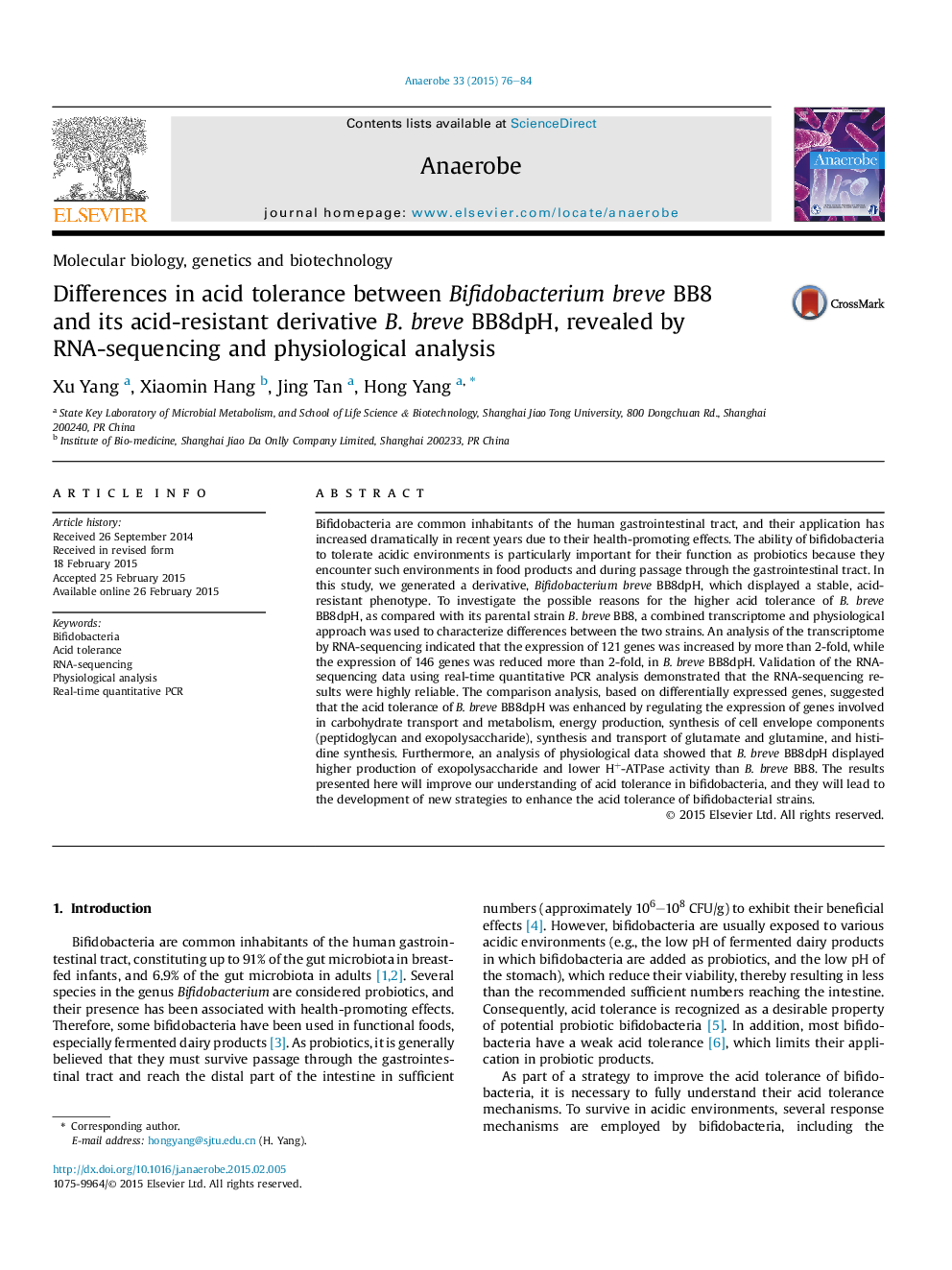| کد مقاله | کد نشریه | سال انتشار | مقاله انگلیسی | نسخه تمام متن |
|---|---|---|---|---|
| 3394900 | 1592830 | 2015 | 9 صفحه PDF | دانلود رایگان |

• A constitutive, acid-resistant derivative Bifidobacterium breve BB8dpH was generated.
• Transcriptome of B. breve BB8 and B. breve BB8dpH was analyzed by RNA-sequencing.
• A model for acid tolerance of B. breve BB8dpH was established.
• A higher production of exopolysaccharide was observed in B. breve BB8dpH.
Bifidobacteria are common inhabitants of the human gastrointestinal tract, and their application has increased dramatically in recent years due to their health-promoting effects. The ability of bifidobacteria to tolerate acidic environments is particularly important for their function as probiotics because they encounter such environments in food products and during passage through the gastrointestinal tract. In this study, we generated a derivative, Bifidobacterium breve BB8dpH, which displayed a stable, acid-resistant phenotype. To investigate the possible reasons for the higher acid tolerance of B. breve BB8dpH, as compared with its parental strain B. breve BB8, a combined transcriptome and physiological approach was used to characterize differences between the two strains. An analysis of the transcriptome by RNA-sequencing indicated that the expression of 121 genes was increased by more than 2-fold, while the expression of 146 genes was reduced more than 2-fold, in B. breve BB8dpH. Validation of the RNA-sequencing data using real-time quantitative PCR analysis demonstrated that the RNA-sequencing results were highly reliable. The comparison analysis, based on differentially expressed genes, suggested that the acid tolerance of B. breve BB8dpH was enhanced by regulating the expression of genes involved in carbohydrate transport and metabolism, energy production, synthesis of cell envelope components (peptidoglycan and exopolysaccharide), synthesis and transport of glutamate and glutamine, and histidine synthesis. Furthermore, an analysis of physiological data showed that B. breve BB8dpH displayed higher production of exopolysaccharide and lower H+-ATPase activity than B. breve BB8. The results presented here will improve our understanding of acid tolerance in bifidobacteria, and they will lead to the development of new strategies to enhance the acid tolerance of bifidobacterial strains.
Journal: Anaerobe - Volume 33, June 2015, Pages 76–84